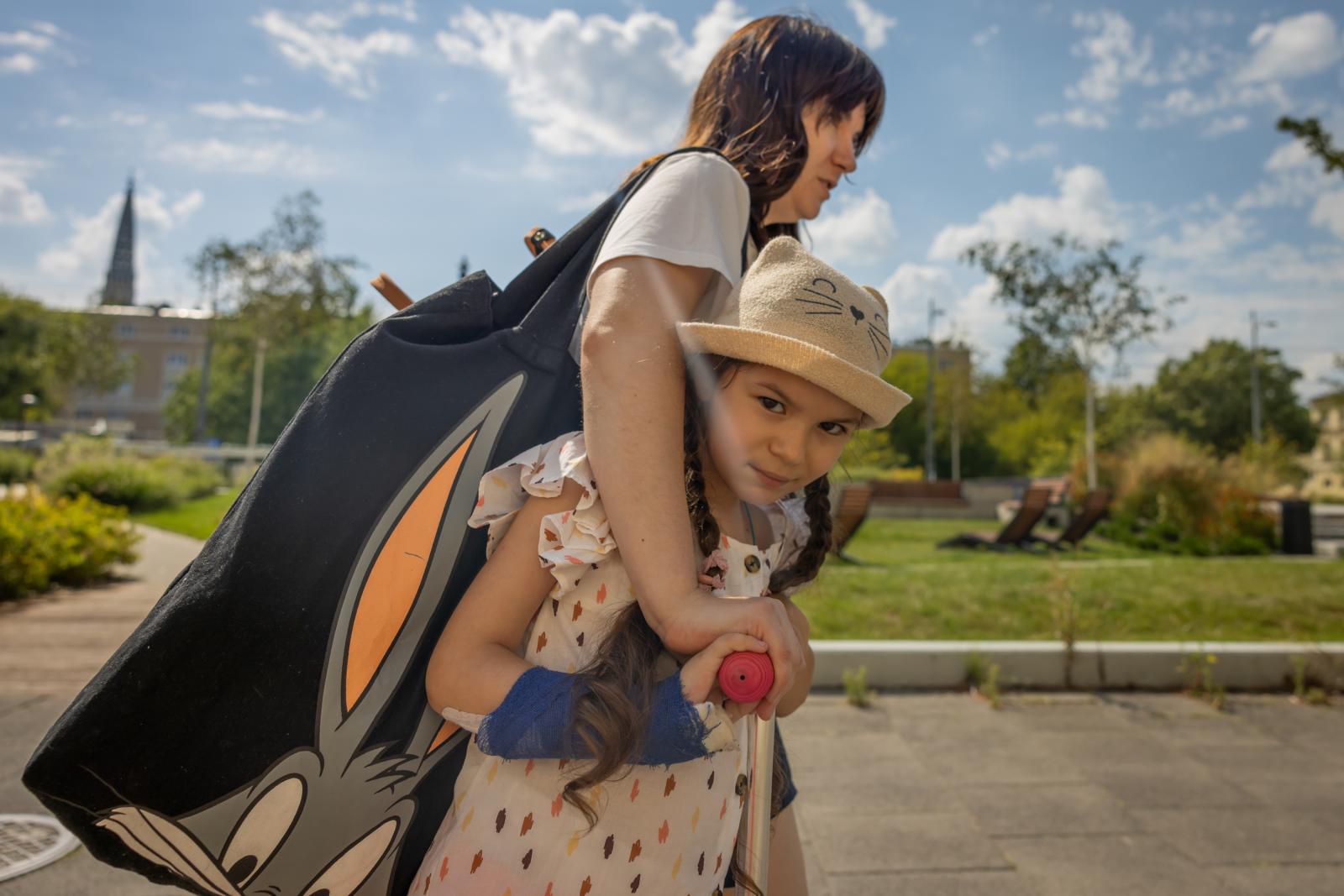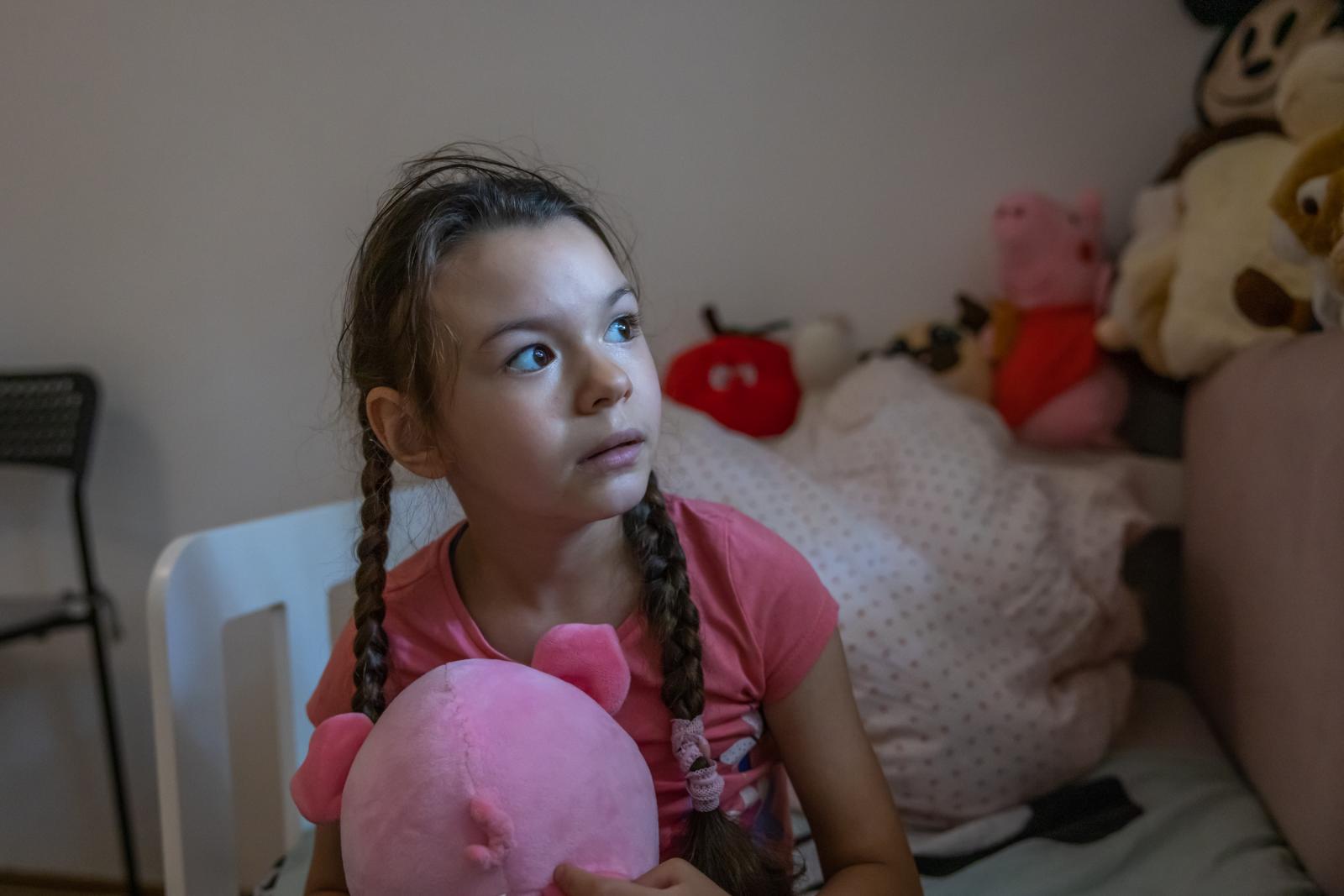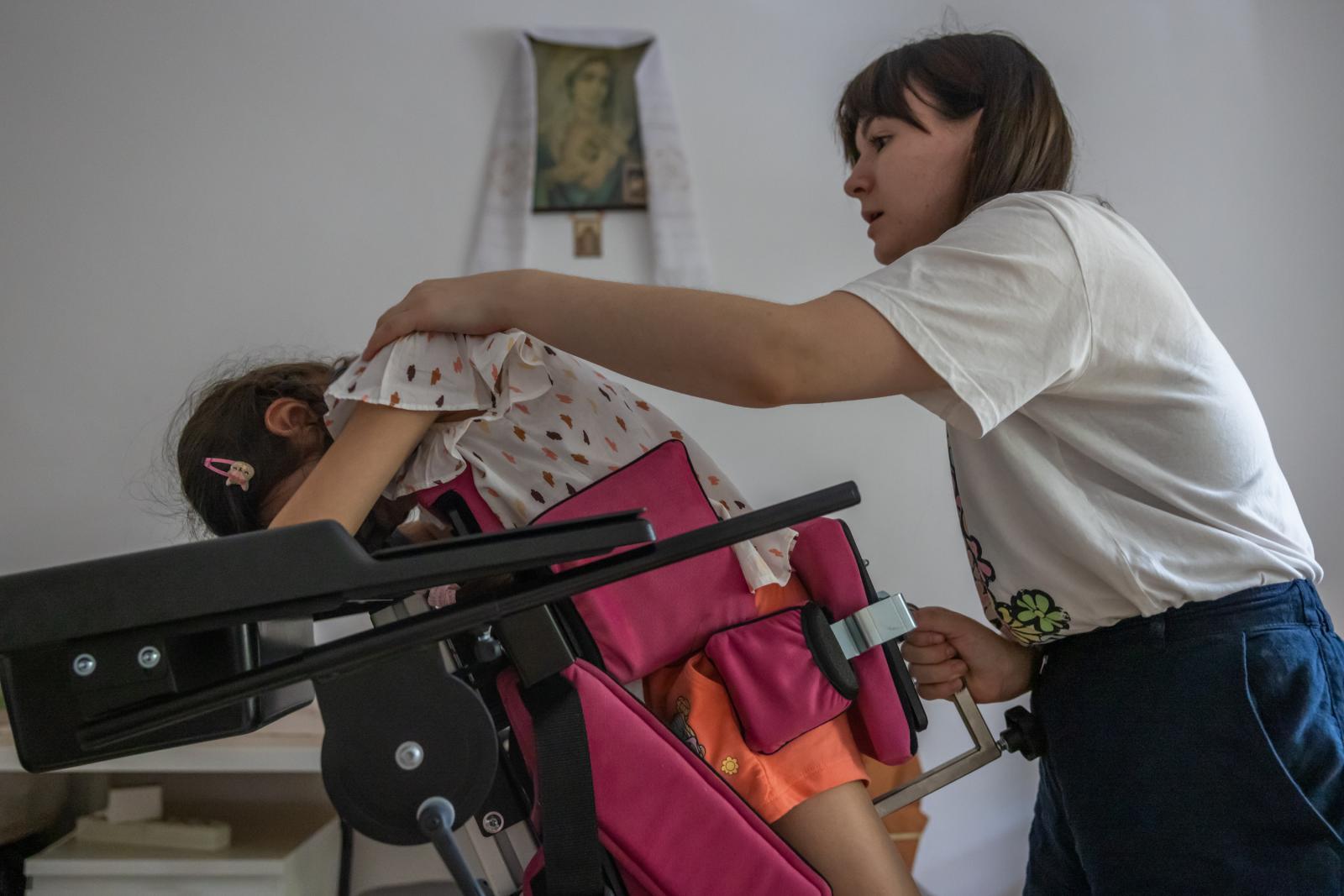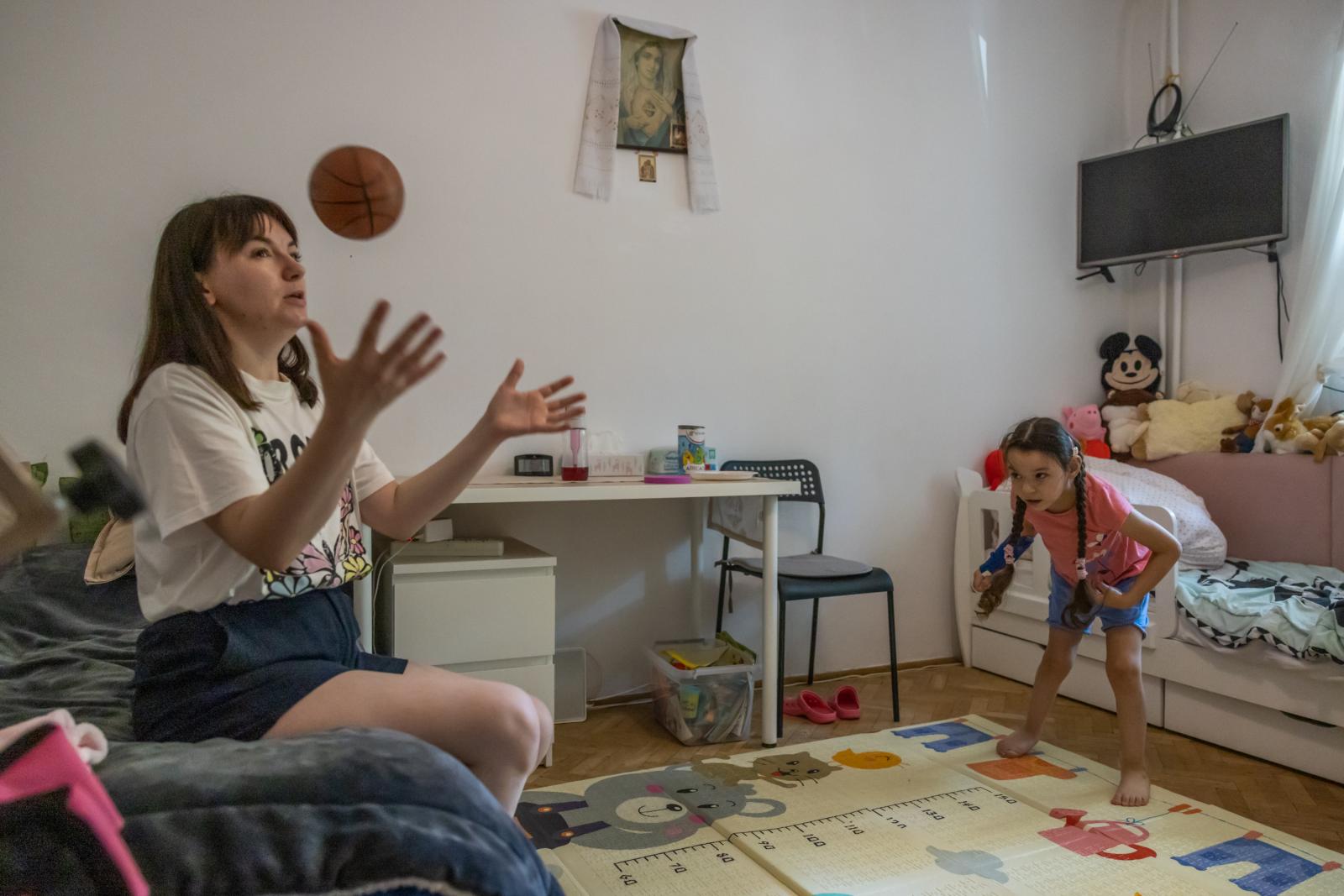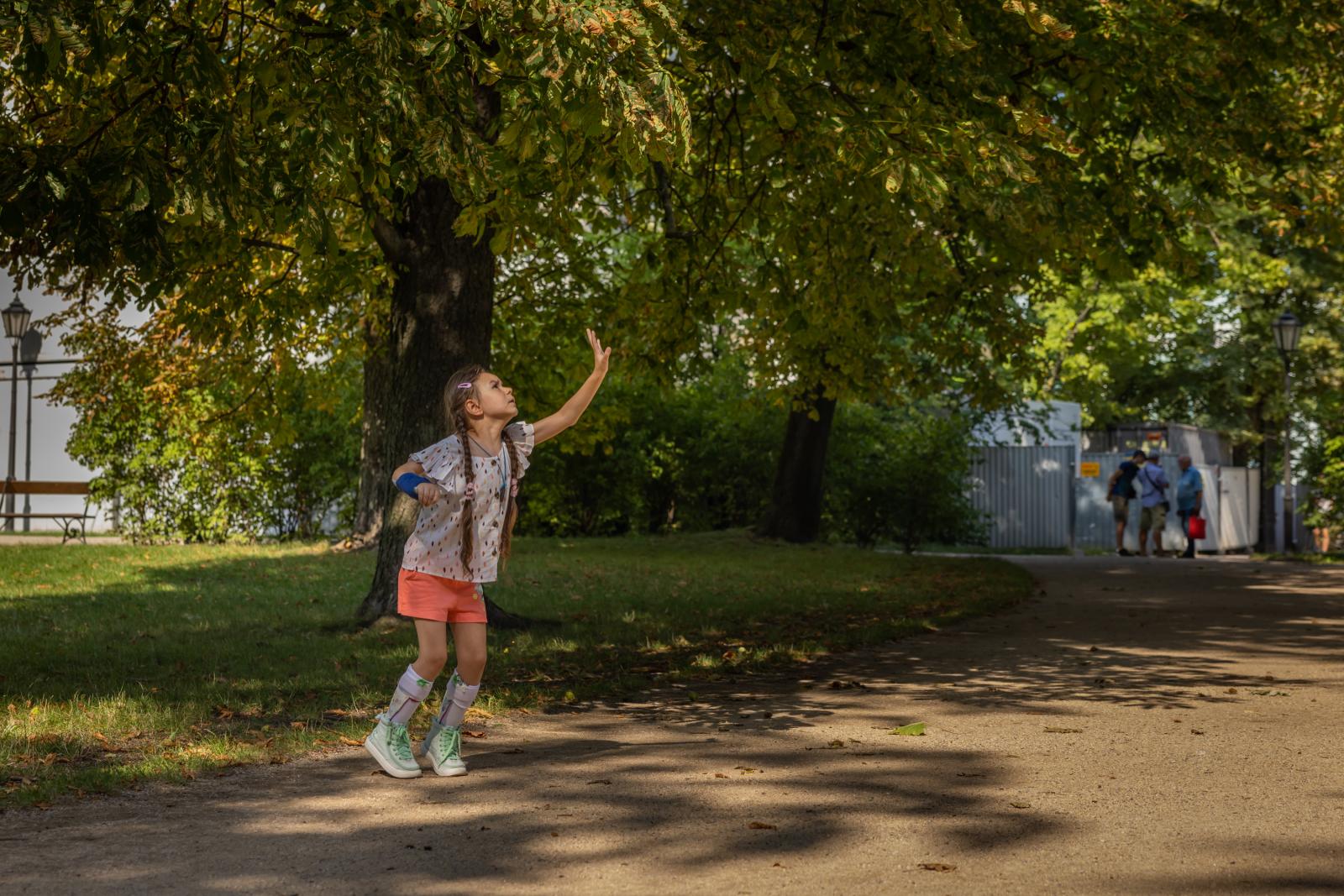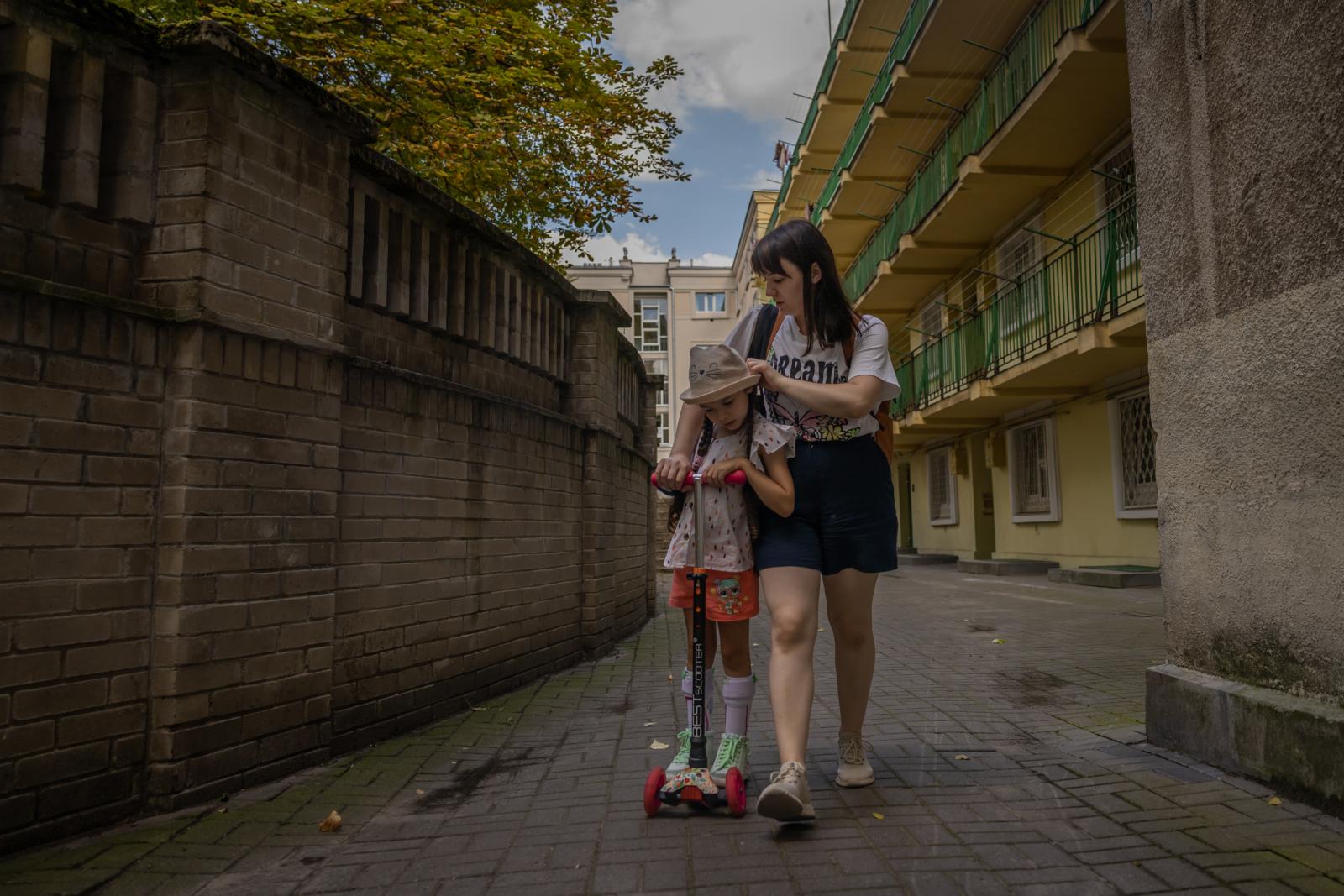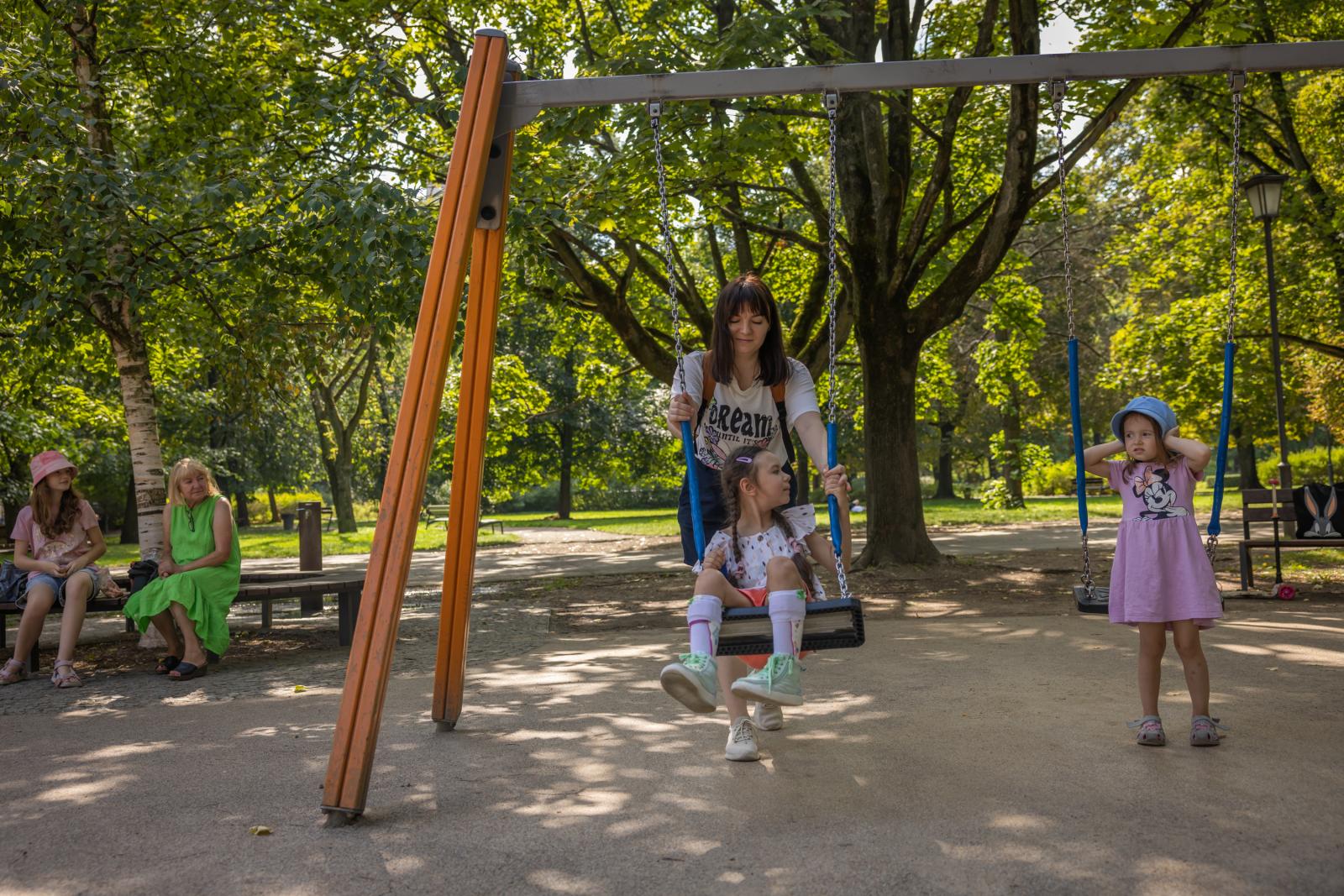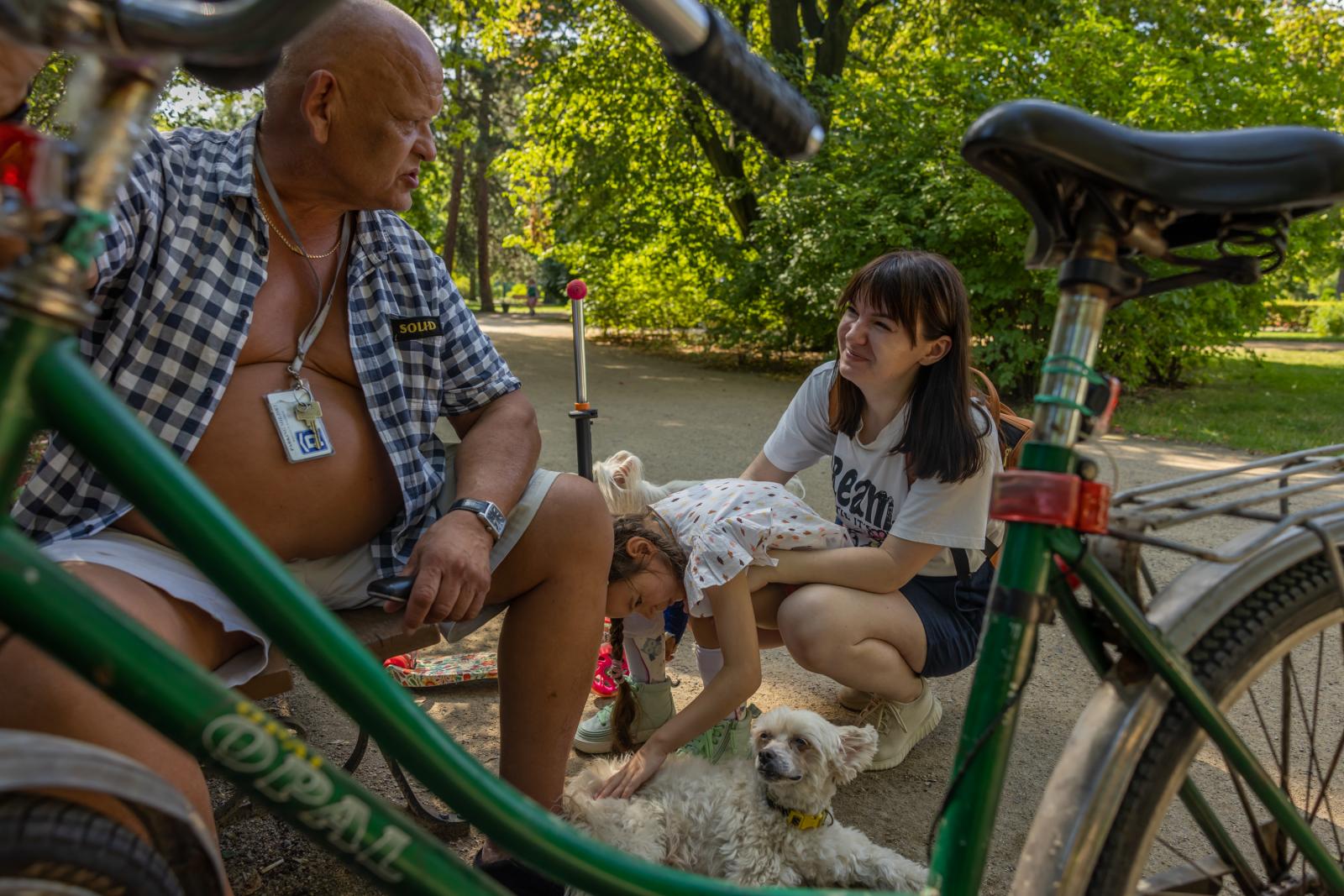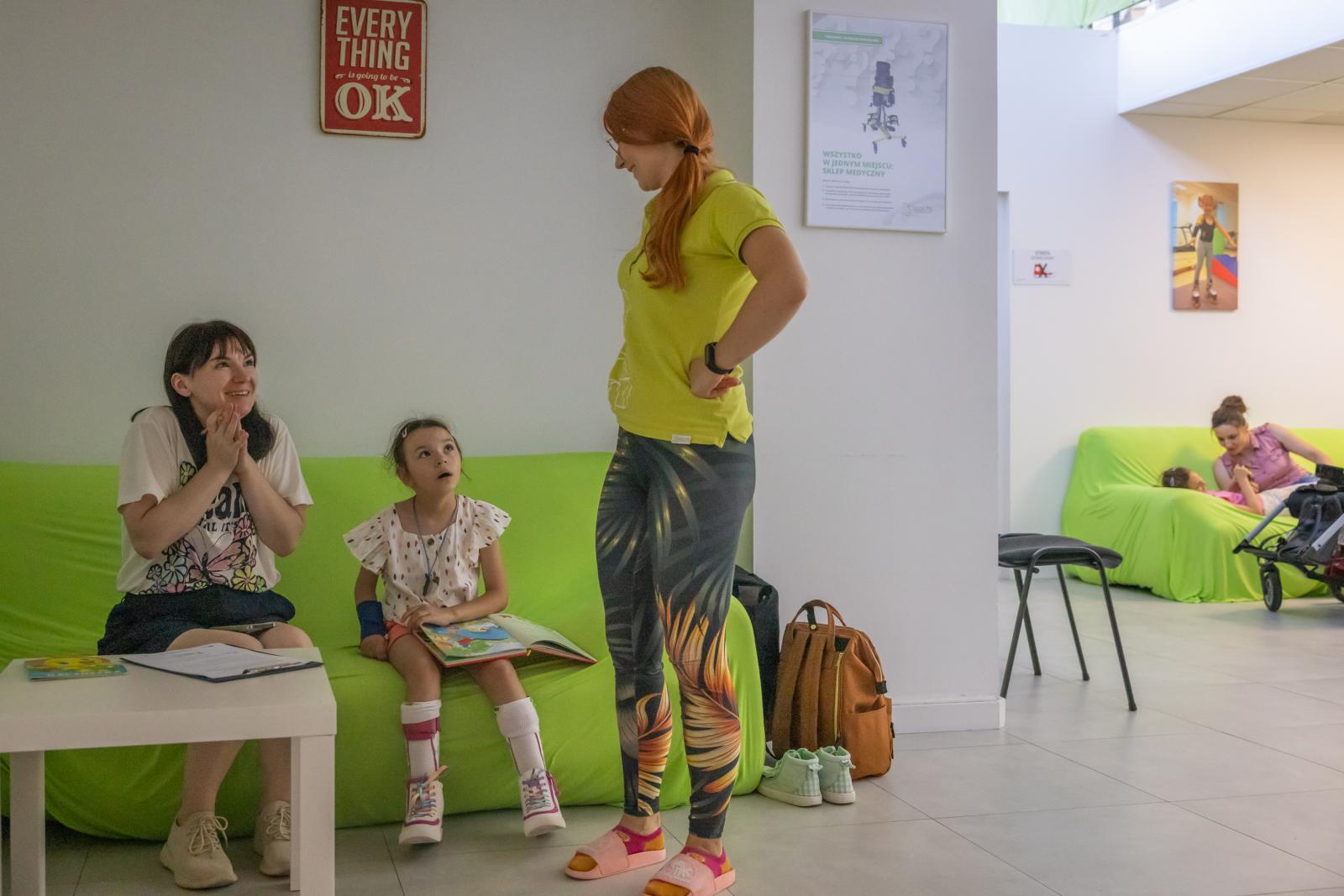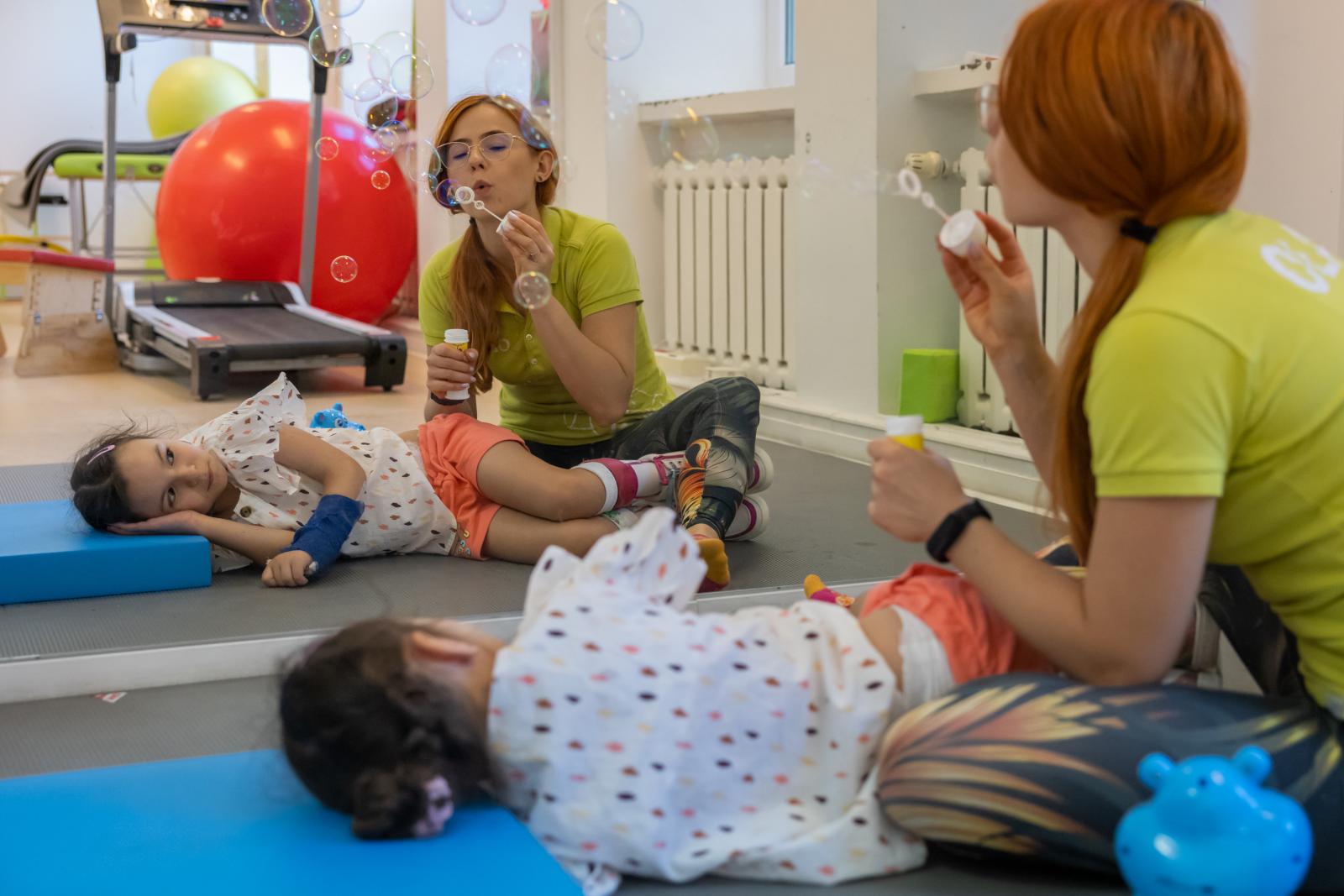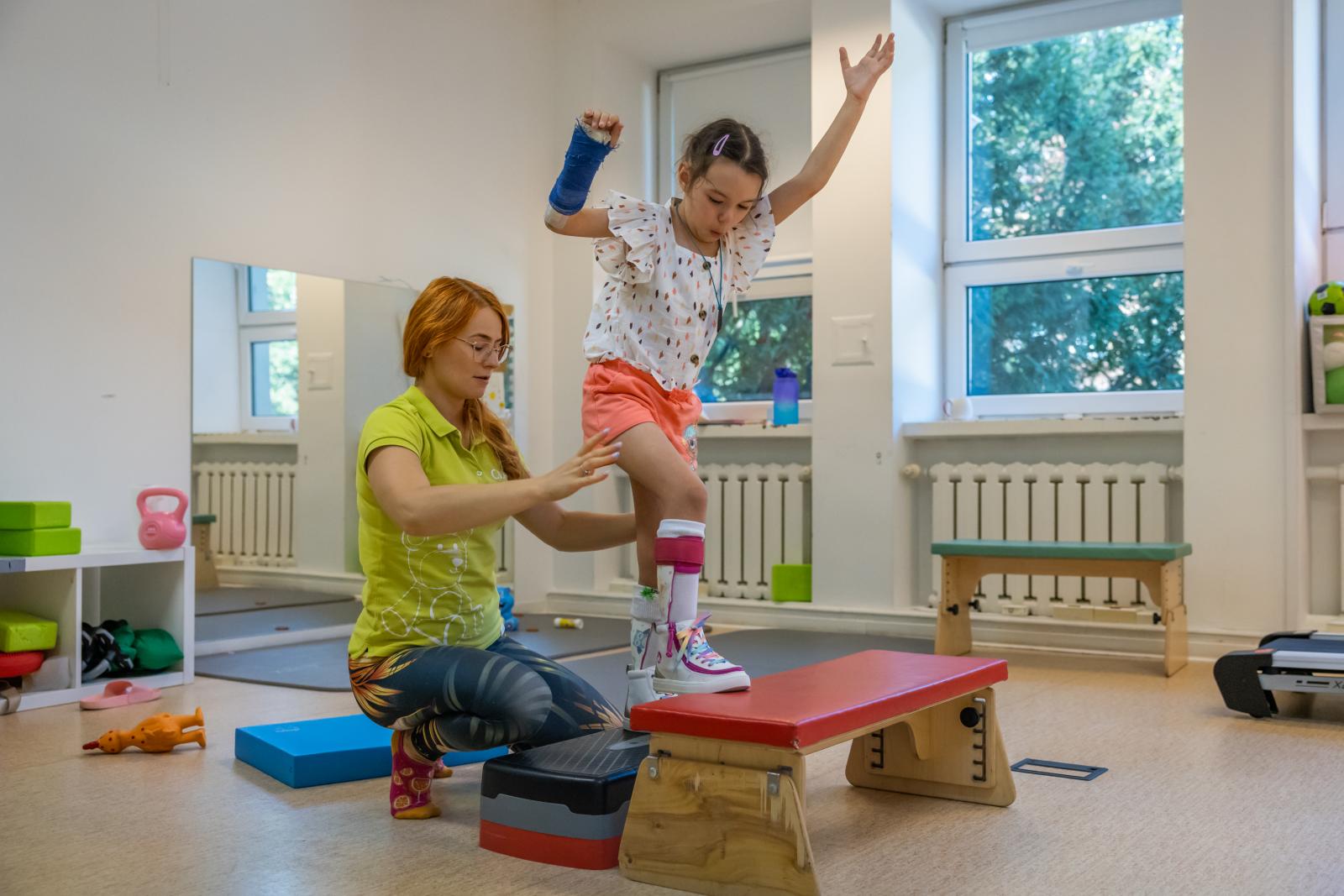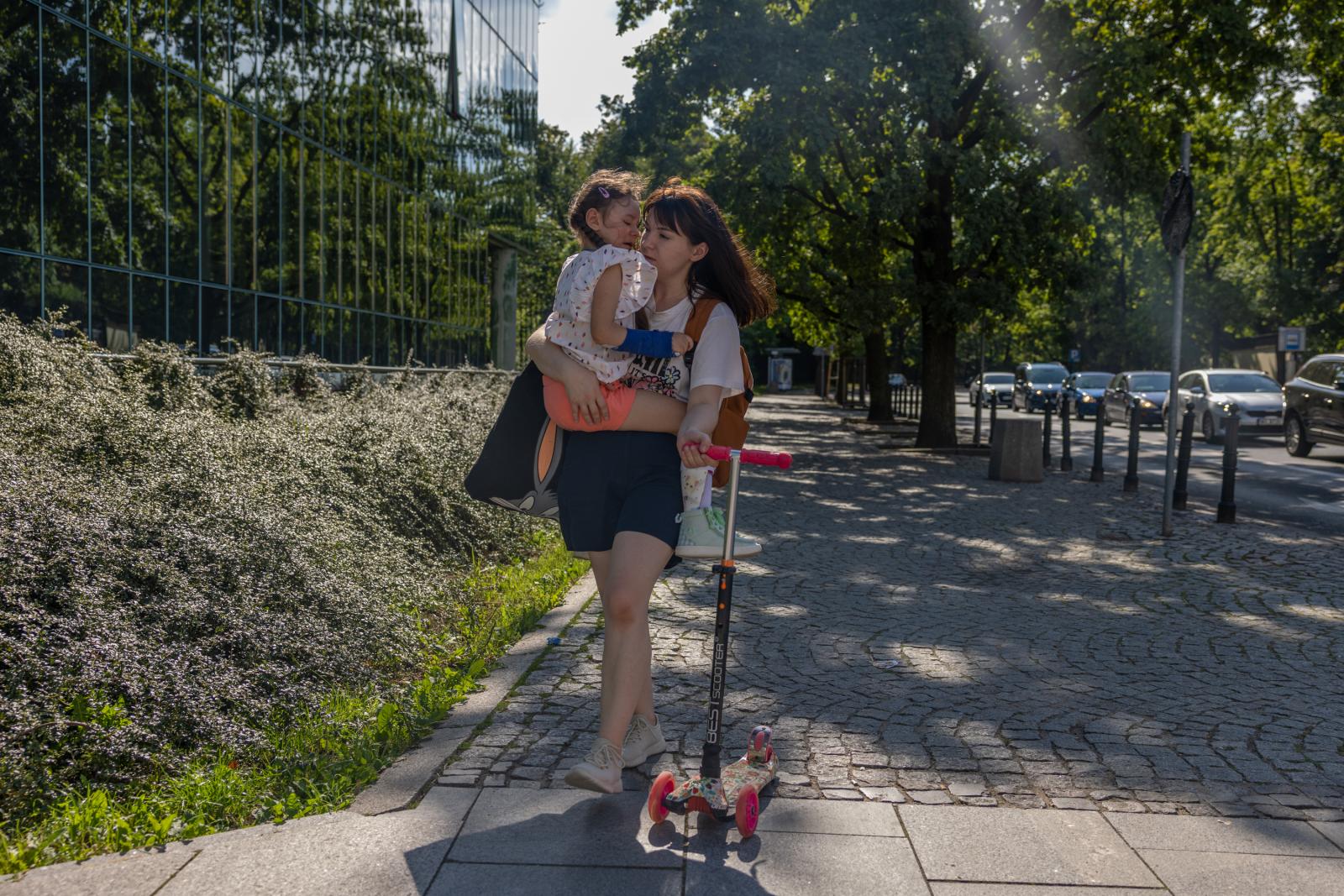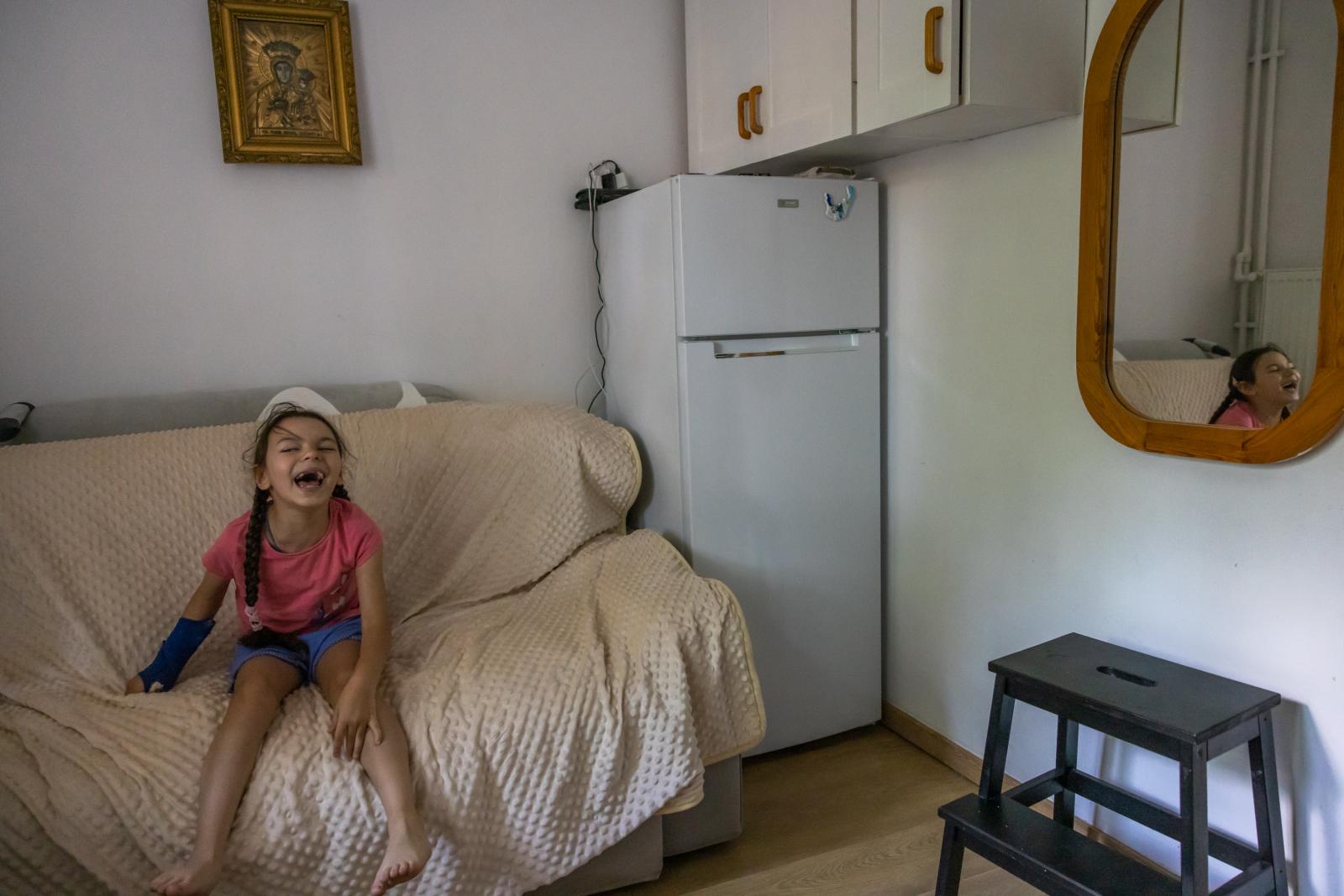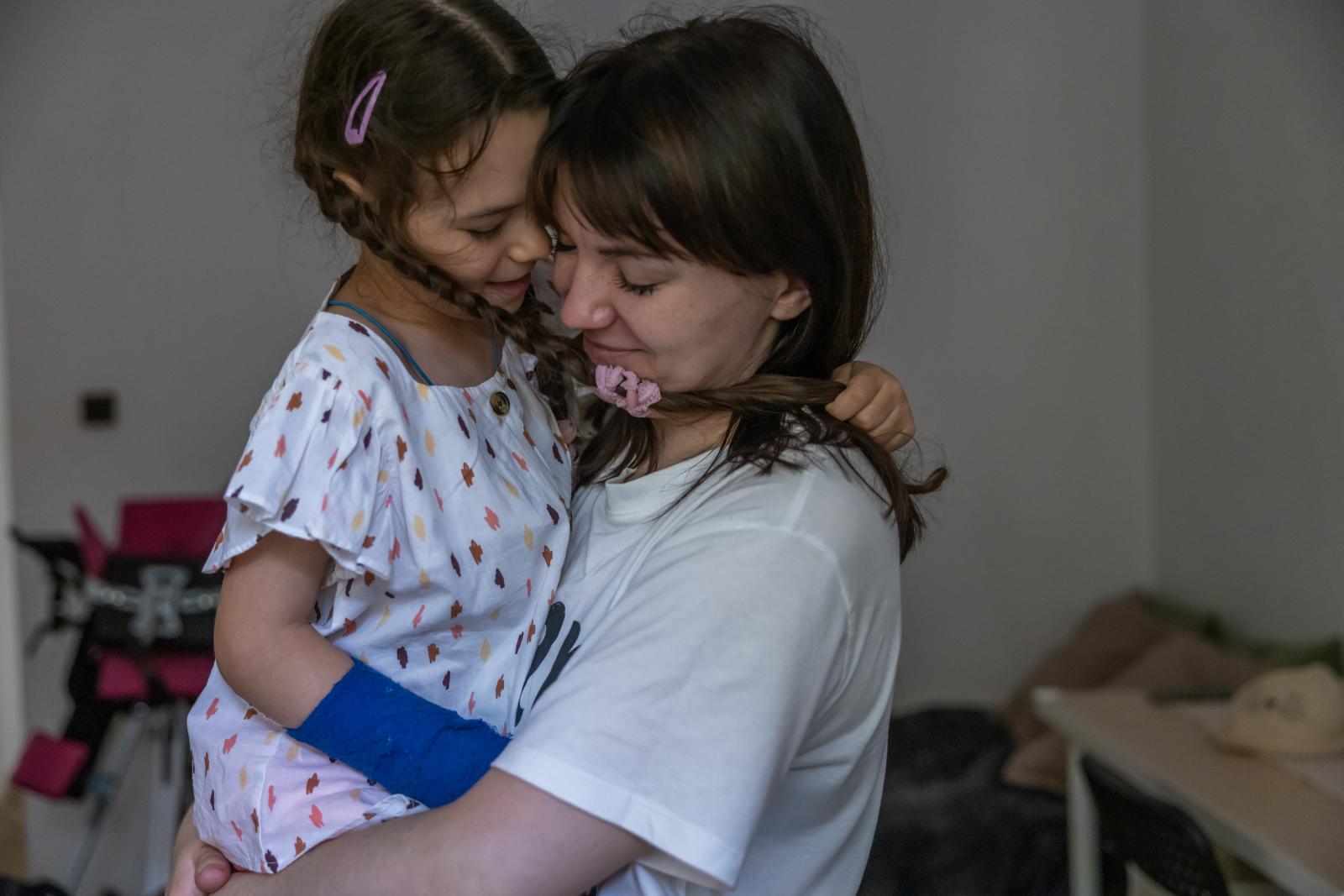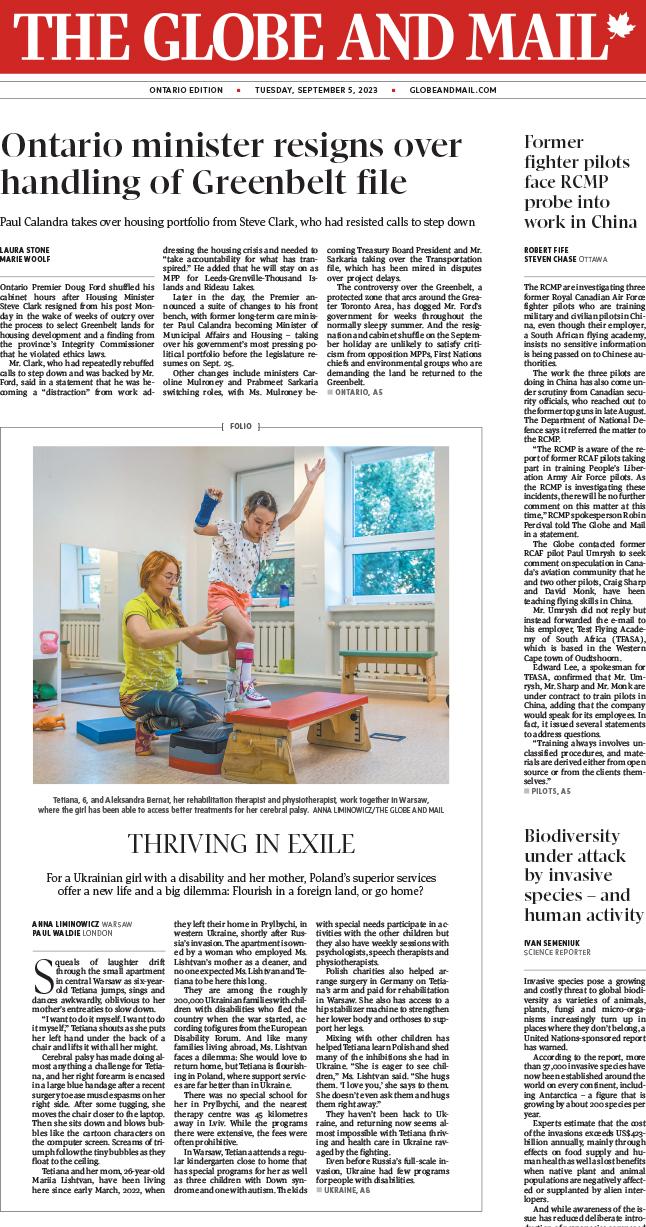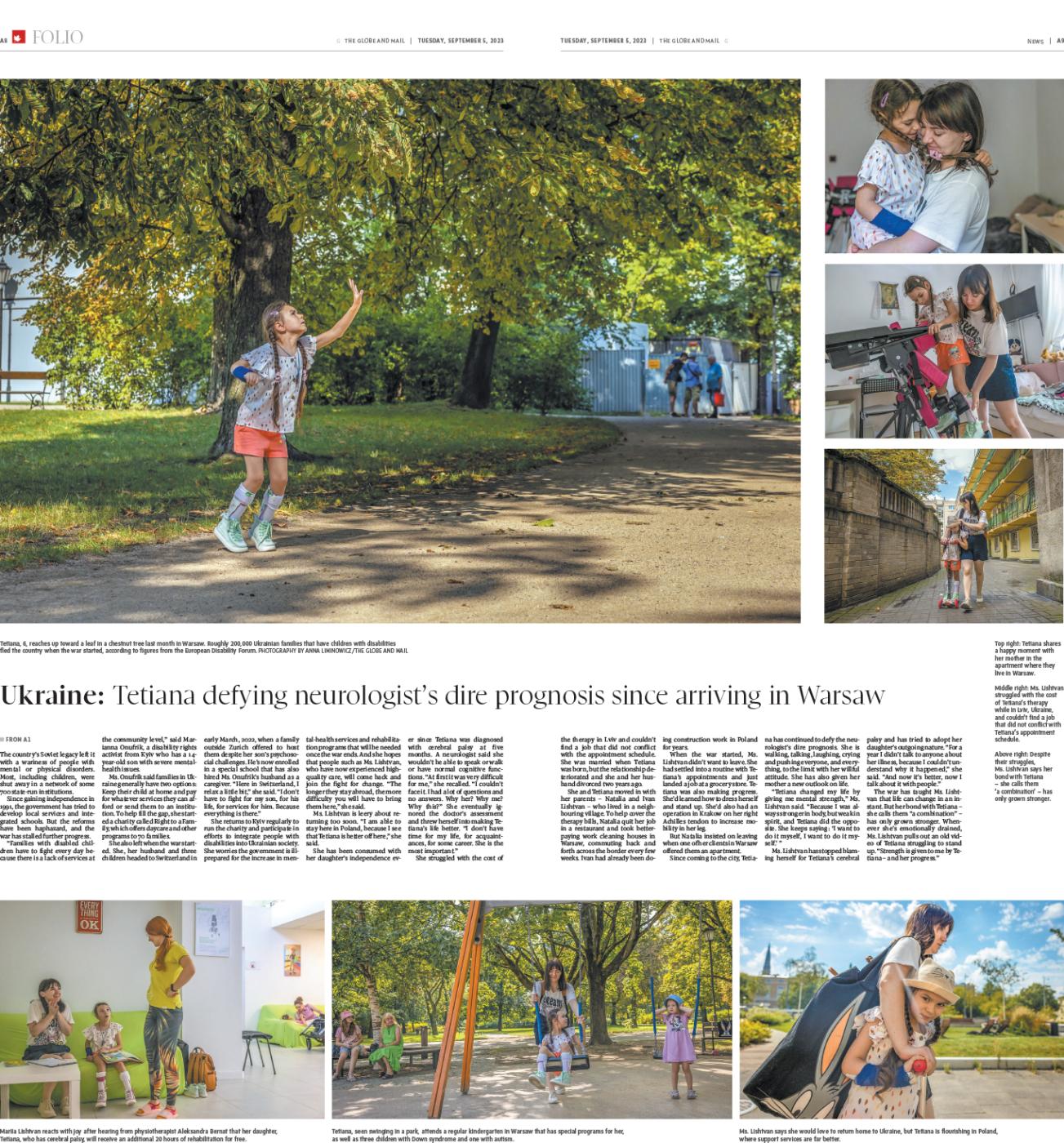Public Story
THRIVING IN EXILE- for The Globe&Mail
Thriving in exile
PHOTOGRAPHY BY ANNA LIMINOWICZ, WORDS BY ANNA LIMINOWICZ AND PAUL WALDIE.
SEPTEMBER 4, 2023
Squeals of laughter drift through the small apartment in central Warsaw as six-year-old Tetiana jumps, sings and dances awkwardly, oblivious to her mother’s entreaties to slow down.“I want to do it myself. I want to do it myself,” Tetiana shouts as she puts her left hand under the back of a chair and lifts it with all her might.
Cerebral palsy has made doing almost anything a challenge for Tetiana, and her right forearm is encased in a large blue bandage after a recent surgery to ease muscle spasms on her right side. After some tugging, she moves the chair closer to the laptop. Then she sits down and blows bubbles like the cartoon characters on the computer screen. Screams of triumph follow the tiny bubbles as they float to the ceiling.
Tetiana and her mom, 26-year-old Mariia Lishtvan, have been living here since early March 2022, when they left their home in Prylbychi, in western Ukraine, shortly after Russia’s invasion. The apartment is owned by a woman who employed Ms. Lishtvan’s mother as a cleaner, and no one expected Ms. Lishtvan and Tetiana to be here this long. They are among the roughly 200,000 Ukrainian families with children with disabilities who fled the country when the war started, according to figures from the European Disability Forum. And like many families living abroad, Ms. Lishtvan faces a dilemma: She would love to return home, but Tetiana is flourishing in Poland, where support services are far better than in Ukraine.
There was no special school for her in Prylbychi, and the nearest therapy centre was 45 kilometers away in Lviv. While the programs there were extensive, the fees were often prohibitive.
In Warsaw, Tetiana attends a regular kindergarten close to home that has special programs for her as well as three children with Down syndrome and one with autism. The kids with special needs participate in activities with the other children but they also have weekly sessions with psychologists, speech therapists and physiotherapists.
Polish charities also helped arrange surgery in Germany on Tetiana’s arm and paid for rehabilitation in Warsaw. She also has access to a hip stabilizer machine to strengthen her lower body and orthoses to support her legs.
Mixing with other children has helped Tetiana learn Polish and shed many of the inhibitions she had in Ukraine. “She is eager to see children,” Ms. Lishtvan said. “She hugs them. ‘I love you,’ she says to them. She doesn’t even ask them and hugs them right away.”They haven’t been back to Ukraine, and returning now seems almost impossible with Tetiana thriving and health care in Ukraine ravaged by the fighting.
Even before Russia’s full-scale invasion, Ukraine had few programs for people with disabilities. The country’s Soviet legacy left it with a wariness of people with mental or physical disorders. Most, including children, were shut away in a network of some 700 state-run institutions.
Since gaining independence in 1991, the government has tried to develop local services and integrated schools. But the reforms have been haphazard, and the war has stalled further progress.“Families with disabled children have to fight every day because there is a lack of services at the community level,” said Marianna Onufryk, a disability rights activist from Kyiv who has a 14-year-old son with severe mental health issues.
Ms. Onufryk said families in Ukraine generally have two options: Keep their child at home and pay for whatever services they can afford or send them to an institution. To help fill the gap, she started a charity called Right to a Family, which offers daycare and other programs to 70 families.
She also left when the war started. She, her husband, and three children headed to Switzerland in early March 2022, when a family outside Zurich offered to host them despite her son’s psychosocial challenges. He’s now enrolled in a special school that has also hired Ms. Onufryk’s husband as a caregiver. “Here in Switzerland, I relax a little bit,” she said. “I don’t have to fight for my son, for his life, for services for him. Because everything is there.”She returns to Kyiv regularly to run the charity and participate in efforts to integrate people with disabilities into Ukrainian society. She worries the government is ill-prepared for the massive increase in mental health services and rehabilitation programs that will be needed once the war ends. And she hopes that people such as Ms. Lishtvan, who have now experienced high-quality care, will come back and join the fight for change. “The longer they stay abroad, the more difficulty you will have to bring them here,” she said.
She has been consumed with her daughter’s independence ever since Tetiana was diagnosed with cerebral palsy at five months. A neurologist said she wouldn’t be able to speak or walk or have normal cognitive functions. “At first it was very difficult for me,” she recalled. “I couldn’t face it. I had a lot of questions and no answers. Why her? Why me? Why this?” She eventually ignored the doctor’s assessment and threw herself into making Tetiana’s life better. “I don’t have time for my life, for acquaintances, for some career. She is the most important.”
She struggled with the cost of the therapy in Lviv and couldn’t find a job that did not conflict with the appointment schedule. She was married when Tetiana was born, but the relationship deteriorated and she and her husband divorced two years ago.
She and Tetiana moved in with her parents – Natalia and Ivan Lishtvan – who lived in a neighbouring village. To help cover the therapy bills, Natalia quit her job in a restaurant and took better-paying work cleaning houses in Warsaw, commuting back and forth across the border every few weeks. Ivan had already been doing construction work in Poland for years.
When the war started, Ms. Lishtvan didn’t want to leave. She had settled into a routine with Tetiana’s appointments and just landed a job at a grocery store. Tetiana was also making progress. She’d learned how to dress herself and stand up. She’d also had an operation in Krakow on her right Achilles tendon to increase mobility in her leg.
But Natalia insisted on leaving when one of her clients in Warsaw offered them an apartment.
Since coming to the city, Tetiana has continued to defy the neurologist’s dire prognosis. She is walking, talking, laughing, crying and pushing everyone, and everything, to the limit with her willful attitude. She has also given her mother a new outlook on life.
“Tetiana changed my life by giving me mental strength,” Ms. Lishtvan said. “Because I was always stronger in body, but weak in spirit, and Tetiana did the opposite. She keeps saying: ‘I want to do it myself, I want to do it myself.’ ”
Ms. Lishtvan has stopped blaming herself for Tetiana’s cerebral palsy and has tried to adopt her daughter’s outgoing nature. “For a year I didn’t talk to anyone about her illness, because I couldn’t understand why it happened,” she said. “And now it’s better, now I talk about it with people.”
The war has taught Ms. Lishtvan that life can change in an instant. But her bond with Tetiana – she calls them “a combination” – has only grown stronger. Whenever she’s emotionally drained, Ms. Lishtvan pulls out an old video of Tetiana struggling to stand up. “Strength is given to me by Tetiana – and her progress.”
LINK- For a Ukrainian girl with a disability, Poland’s superior services offer a new life and big dilemmas
In Warsaw, a six-year-old with cerebral palsy can get care that her mother struggled to find in Ukraine, even before the war. Now, like many families in exile, they have a hard choice: Flourish in a foreign land, or go home
Theglobeandmail.com

